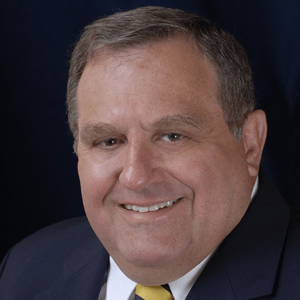In 2001, Boeing shocked state and local leaders announcing it was relocating its headquarters to Chicago. Suddenly, the company with its deep roots in our Puget Sound region was housed on the shores of Lake Michigan.
That move coupled with Boeing’s world-wide search for sites to build its next generation of commercial airplanes prompted then Gov. Gary Locke (D) to form a competitiveness council. Its mission was to recommend ways to improve our state’s competitiveness primarily so Boeing’s production and jobs would remain here.
Some legislative and regulatory changes prompted by council landed the majority of the 787 production here. However, Boeing now has a second “Dreamliner” assembly line in South Carolina signaling that Washington is in stiff competition with the rest of the world for lucrative aerospace jobs and production.
Fast forward to 2016 and you can imagine the tremors shaking Connecticut these days with General Electric’s announced headquarters relocation to Boston. GE moved to Fairfield in 1974.
Joe Brennan, president of the Connecticut Business and Industry Association (CBIA), said “if there’s one single takeaway from General Electric’s decision to relocate its headquarters, it’s that Connecticut’s policymakers cannot view it as an isolated case. The conditions that led to this decision exist for many companies in Connecticut.”
Since 2011, Connecticut’s legislature, which has large Democrat majorities, approved the largest and second largest tax increases in the state’s history, along with a slew of costly mandates directed at businesses. Gov. Dannel Malloy (D) has done little to put the brakes on tax increases and mounting business costs.
A CBIA survey of Connecticut businesses last year found broad misgiving about state government fiscal responsibility and the state’s competitiveness. “That constant cycle of budget deficits followed by tax hikes, coupled with growing costs, continue to undermine business confidence,” Brennan concluded.
In 2015, lawmakers hiked taxes by $1.3 billion. It was the fifth tax increase in five years. Unfortunately, Connecticut business leaders see no impending relief. Over the next two years, state spending is projected to rise by another $1.5 billion of which $700 million goes to higher personnel costs.
Connecticut’s bloated government payroll and woefully underfunded pension accounts, resulted in state budgets doused in red ink—and it is getting worse.
That’s especially bad for Connecticut which has recorded zero GDP growth since 2010.
Meanwhile neighboring Massachusetts, which was dubbed “Taxachusetts” in the 1970s because of the high amount of personal income going to pay state and local taxes, learned its lesson. Taxing your way to prosperity doesn’t work.
State officials want business. In fact, Boston offered GE $145 million in incentives to move there.
Massachusetts has steadily lowered taxes. Lawmakers cut the corporate rate from 9.5% to 8% while Connecticut hiked its corporate rate to 9%. They also lowered the state’s top income tax rate to 5% while Connecticut raised its rate to 6.99%.
The strategy is working and Massachusetts is now the most attractive place for business in the Northeast.
What is happening in Connecticut should be a lesson for Washington elected officials.
According to the Washington Research Council (WRC), our state has the sixth highest percentage of business taxation in the U.S. In Washington businesses are the source of 62 percent of all state tax revenues, and 52 percent of local taxes.
Gov. Jay Inslee (D) and lawmakers currently meeting in Olympia must remember that taxes, fees and regulatory costs determine whether all business, not just Boeing, stay in Washington.
Replicating what is happening in Connecticut would be another bad trip down memory lane.
We would not want to see a Wall Street Journal editorial conclude: “The last business to leave, please turn out the lights!” That’s Connecticut leaders read on Jan. 14.
Don C. Brunell is a business analyst, writer and columnist. He retired as president of the Association of Washington Business, the state’s oldest and largest business organization, and now lives in Vancouver. He can be contacted at theBrunells@msn.com.



